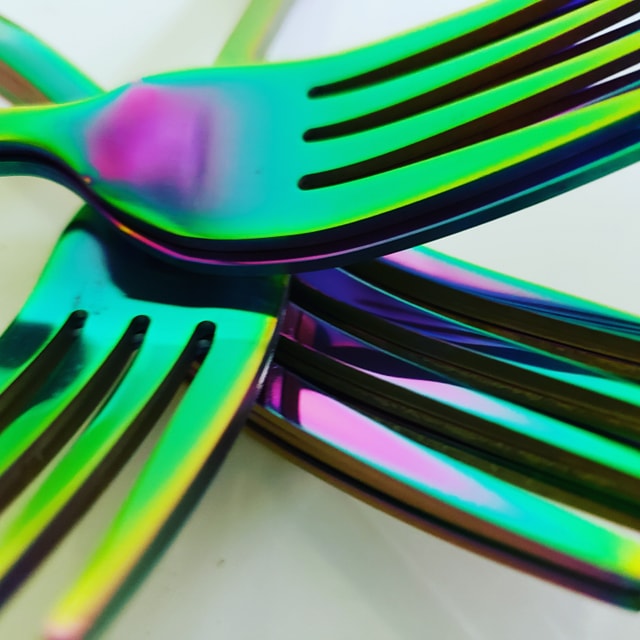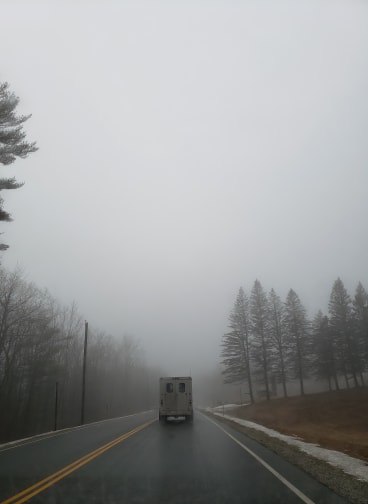
Years ago when I was given the label of “Chronic Fatigue Syndrome” I was under the impression that this was an affliction of the body and it very much was. On bad days I’d get up, do some trivially small thing, and feel like I have been up three days on a bender. My body would hurt, my eyes wouldn’t want to open, and yes, even my brain would start to sound like static. No one had told me my brain would be just as involved as my body. There was nothing going on between those ears, especially the more I pushed it. And this is ultimately why I quit my schooling. To my parents this was a devastating personal choice but to me it was survival. Once a keen student who could grasp any concept by the time I quit I’d just be staring blankly down at a sheet of paper forgetting what I was supposed to be doing in the first place. It was like information just wasn’t going in but instead bouncing off my skull and back onto the page. This was only the beginning.
My problems started when I was twelve. By my teen years I was isolated and completely lost. I joined an online support group who affectionately named this phenomenon brain fog. They compared it to feeling like a zombie, operating on autopilot and still failing, and there were many jokes made about how we’d all inadvertently end up in the kitchen a few times a day without knowing why.

In those early years this was terrifying to me. I had always prided myself on my sharp and intense mind which was always exploring everything around me but now? Now I was having these weird episodes where I was reduced to the function of a toddler, or at least that’s what my mother claimed. She said she could give me a simple instruction, something like, “please put this in the microwave” and I wouldn’t respond or I’d take three tries to take in the information and do what I needed to do with it. With this came a difficulty in recalling words so my communication skills plummeted. I would get very frustrated making aggravated hand gestures, “I need the thing! The stabby thing! For the food!” And by the time I was given a fork I would have had been so worked up about forgetting the word fork I was hard to settle down again.
But the most terrifying of these episodes was later, after I learned how to drive. Every week I’d drive forty-five minutes into the “city,” really just a moderately larger town, to do errands. I knew where all the stores were and what needed to be done but one day for no reason whatsoever I got lost going around the rotary. I tried every exit, or at least I thought I did, and nothing looked familiar no matter what I did. It was like having amnesia and I was scared out of my mind because I didn’t know how I was going to get home. These were the days before I had a GPS so I was up shit creek without a paddle. I drove off, found somewhere to park, and called home in the midst of what was now a full blown panic attack. I was on the verge of tears and I am someone who really doesn’t cry. My mother who is usually an intensely high strung individual for some reason was calm that day which is what I needed. She talked me through looking at the street signs and following the ones going in the direction I needed. I fought her the whole way because at the time this didn’t make sense to me.
I got home that day feeling like a failure. I still don’t know exactly what happened. Brain fog and a sudden loss of memory would go from being unbearable and terrifying to being so routine I learned to work around them for the most part. It’s been over twenty years now and it has taken me this long to learn to accept life for what it is for me… stunted. But I can tell you what helped me along the way.
The first HUGE thing was a support system. I always thought support groups were silly, frivolous, and maybe helpful for the weak among us, but I learned pretty quickly that they were a godsend and were populated by some of the mentally strongest individuals I had ever come across. They could give me helpful hints but the most beneficial thing they ever did was give me a listening ear, one that truly understood what I was going through. I was fortunate to have had my parents and other people in my life who were supportive but it’s different when the person you’re talking to knows exactly how you’re feeling and why because they’ve already been there and done the same thing.
From here I had to learn a bunch of life hacks to help me through the day. I became one of those people that makes lists – lists of things I need to get accomplished, lists of things I need to pick up at the store, lists of various notes I may need at some point. And since I was completely and utterly unable to remember things on a schedule I had to set alarms – to get up, to take medication, and yes, even to eat (as I lost my sense of hunger after having my gall bladder removed.) This was made much easier with the advent of smart phones. I honestly don’t know where I’d be without my phone today. And when it came to driving I made sure to buy a GPS when they first became commercially available. The “home” button has saved my ass more times than I can count!
But ultimately what I really needed was acceptance. As a teenager I really thought I’d get better and go back to living a normal life eventually. It was an enormous blow to my ego to discover that just wasn’t the case… that as the years ticked by things would really only become more challenging and that was just the way it was going to be. It shattered any concept of fairness I may have had. But then somewhere along the way I started utilizing my most valuable tool – a dark sense of humor. If I could poke gentle fun at myself and all my shortcomings I would be OK. Instead of getting frustrated at forgetting a word I’d slow down, smile, laugh and basically say, “Silly me. I have no idea what I am trying to say!” And when I learned to laugh it became so much easier.
OK, so life isn’t what I thought it would be. Stupid tiny things are still Olympic feats for me and by the way things look this will be my reality until the end. I’m not going to say I enjoy it – because I still have days of absolute exasperation – but at least I can say I have come this far and will likely continue to charge forward as foolhardy as anyone. And on good days, days like this one, I thank the heaven’s for a clear mind and I write. It helps. So does taking pointless photos of my everyday life which I hope you have enjoyed decorating these blog entries.

